Online Doctor of Business Administration (DBA) in Health Care Administration

Northcentral is a private, online, non-profit university founded in 1996. It’s classified as a Doctoral Research University and headquartered in San Diego, California.
Northcentral serves almost 10,800 students and has a 1:1 student-to-faculty ratio. It was previously a for-profit university, but was acquired by the National University System in January 2019, and converted to a non-profit model.
Northcentral offers undergraduate, graduate, specialist, and doctoral degrees in Business, Technology, Health Sciences, Education, and Social and Behavioral Sciences. The school’s motto is “One-to-One Education By Experience.”
Northcentral offers an online Doctor of Business Administration (DBA) in Health Care Administration that prepares you to continue your career in health care management. It can be completed in 39 months and requires 54 credit hours (18 courses).
The program covers strategic planning in health care, managing systems, analysis of health care systems, and strategic quality management in health care. You’ll become adept at recognizing and solving problems, analyzing and intervening on administrative issues, and understanding the limitations to delivery systems, among many other outcomes.
Q&A about Doctorates in Health Leadership
Is there a Ph.D. in Health Care Administration?
 If you’re looking for a Ph.D. in Health Care Administration, you’ve come to the right place. While a Ph.D. in this discipline is rarer than other degrees, they still exist. A Ph.D. is a degree that’s more focused on creating future researchers and academics. If you’re looking to work in academia and make discoveries that will significantly impact the future of healthcare, you should pick one of these programs.
If you’re looking for a Ph.D. in Health Care Administration, you’ve come to the right place. While a Ph.D. in this discipline is rarer than other degrees, they still exist. A Ph.D. is a degree that’s more focused on creating future researchers and academics. If you’re looking to work in academia and make discoveries that will significantly impact the future of healthcare, you should pick one of these programs.
However, if you’re looking to work in more practical, front-facing roles, another type of doctorate might be best for you. People who hold Ph.D.’s obviously work in many different positions, and can cross over to leadership roles in health care administration, but are more likely to be found working at research centers, or colleges and universities.
Carefully consider what you want to do with your degree. Do you want to educate health care professionals and be part of research that will deeply impact the field? Or would you rather take research and work done by academics to make evidence-based decisions in healthcare organizations that work on the front lines of health care delivery, among other services? There’s a lot of diversity in programs on this list, so you have plenty of options to satisfy your career goals.
What is a PhD in Health Services?
 A Ph.D. in Health Services stands for a Doctor of Philosophy in Health Services. In these programs, you’ll learn about the finances, structures, and policies of healthcare in the United States. You’ll be prepared to work in research, teach future healthcare professionals, and do vital healthcare policy analysis. There are other roles that you’d qualify for, but these are the most common outcomes. Some people who hold these degrees end up working in government agencies. You’ll have titles like research associate, research scientist, and executive roles in a number of agencies, universities, and other organizations.
A Ph.D. in Health Services stands for a Doctor of Philosophy in Health Services. In these programs, you’ll learn about the finances, structures, and policies of healthcare in the United States. You’ll be prepared to work in research, teach future healthcare professionals, and do vital healthcare policy analysis. There are other roles that you’d qualify for, but these are the most common outcomes. Some people who hold these degrees end up working in government agencies. You’ll have titles like research associate, research scientist, and executive roles in a number of agencies, universities, and other organizations.
You might specialize in occupational health, health systems research, health economics, evaluative sciences and statistics, health behavior and social determinants of health, among other concentrations when participating in these programs. You’ll likely need 3-5 years to complete these programs. By pursuing one of the online options available for these degrees you can build an education schedule that fits into your current work and life obligations, with minimal interruption. However, you’ll likely need to do some in-person intensive sessions as part of these programs, so make sure to weigh the distance between where you live and work and any program you’re applying to.
At their core, Ph.D.’s focus on creating original research. Other related healthcare doctorates take that research to solve healthcare problems in many settings.
What Jobs Can I Get With a Ph.D. in Health Care Administration?
There are many different roles a Ph.D. in Health Care Administration will prepare you for. Some of the most common include working as a:
- Healthcare Professor: In these roles, you’ll educate the next generation of healthcare professionals, whether they’re working in public health, health administration, clinical roles, and much more.
- Researcher: Here you’ll work to create the information that will influence decisions made across the healthcare landscape.
 Health Information Manager: You’ll manage the health records of a medical facility, making sure they stay protected, and are only shared with authorized parties. You’ll use the latest software and medical information technology available, and have a deep understanding of the regulations that govern medical records.
Health Information Manager: You’ll manage the health records of a medical facility, making sure they stay protected, and are only shared with authorized parties. You’ll use the latest software and medical information technology available, and have a deep understanding of the regulations that govern medical records.- Clinical Manager: These are the shock troops of health care administration. You’ll need a detailed understanding and experience in the health industry. People in these roles often have tremendous managerial skills and experience working in a role like nursing in addition to their education. You’ll write reports, design budgets, implement policy, train personnel, and much more in a vast array of settings.
 Hospital Administrator: This is what it sounds like. You’ll run a hospital, making sure its services are delivered properly and its policies are closely followed by its staff, who you will coordinate and supervise.
Hospital Administrator: This is what it sounds like. You’ll run a hospital, making sure its services are delivered properly and its policies are closely followed by its staff, who you will coordinate and supervise.
What does DHSC stand for?
DHSC stands for Doctor of Health Science (D.H.S. or D.H.Sc.). These are post-professional degrees that prepare graduates to work at the highest levels of medical clinical practice, health education, research, and administration. You’ll likely need a master’s degree, and at least two years as a healthcare worker, teacher, administrator or researcher to enter these programs.
 In these programs, you’ll study how to improve healthcare quality and delivery as well as the best ways to educate healthcare workers and manage an array of different health organizations or agencies. You’ll take courses in the legal policies and ethics in healthcare, healthcare professionalism, clinical healthcare, research and analysis, community health, public health, disease prevention, healthcare policy, and healthcare delivery, among many others.
In these programs, you’ll study how to improve healthcare quality and delivery as well as the best ways to educate healthcare workers and manage an array of different health organizations or agencies. You’ll take courses in the legal policies and ethics in healthcare, healthcare professionalism, clinical healthcare, research and analysis, community health, public health, disease prevention, healthcare policy, and healthcare delivery, among many others.
You might find DHSC degrees that specialize in one particular type of health professionals, like physical therapy. You might also take courses in areas like medical screenings, medical imaging, health information, pharmacology, and more. These degrees can help qualify you for many diverse roles in healthcare, and earning one now will inundate you in the latest technologies, methods, and challenges within the field.
Before we close out, let’s take a look at what people who earn these degrees go on to do:
What Does a Doctor of Health Science Do?
Doctors of Health Science occupy many different roles throughout the healthcare landscape. As we previously discussed, you could work as a medical/health service manager or administrator. In these roles, you’ll supervise operations, personnel, services, and information, among other responsibilities. You’ll work to guarantee your facility runs as effectively as possible while meeting standards you’ve set and complying with laws and regulations. You’ll recruit staff, manage finances, maintain facility records, and much more.
Another familiar role for DHSC holders is working as professors teaching college-level courses that prepare future healthcare workers and leaders to do their jobs successfully. In these roles you’ll advise students, create teaching plans, measure students’ work, do vital research and help your students do the same.
 A DHSC can also lead to work in a specific aspect of science, like biochemistry or biophysics. In these positions, you’ll look at the physics and chemistry that create and govern life. Your findings will help develop medical advancements and a better understanding of organisms. You’ll likely also teach college-level courses while working in this field as well.
A DHSC can also lead to work in a specific aspect of science, like biochemistry or biophysics. In these positions, you’ll look at the physics and chemistry that create and govern life. Your findings will help develop medical advancements and a better understanding of organisms. You’ll likely also teach college-level courses while working in this field as well.
Finally, DHSC holders can work in health care policy or advocacy for a government agency or non-profit, taking their in-depth knowledge of the field and applying it to help legislators and agencies make better decisions that improve outcomes for people across the country and the world.
We hope you’ve found this guide and ranking useful. Remember, if you see a program that feels like a good fit, it’s helpful to reach out to it directly to get more information. Best of luck!
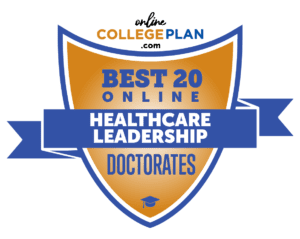 The American and global healthcare systems are at a crossroads. Some of the areas the field is changing include the development of new technology, exponentially increasing medical discoveries, political battles over the nature of healthcare delivery (whether it should be private and for-profit, or single-payer and non-profit), and breakthroughs towards curing major health viruses and diseases like cancer, HIV and AIDS, cystic fibrosis, Ebola, and Alzheimer’s disease, among others. All of this change means health organizations both new and old are desperately in need of bold, effective leadership. That’s where you come in.
The American and global healthcare systems are at a crossroads. Some of the areas the field is changing include the development of new technology, exponentially increasing medical discoveries, political battles over the nature of healthcare delivery (whether it should be private and for-profit, or single-payer and non-profit), and breakthroughs towards curing major health viruses and diseases like cancer, HIV and AIDS, cystic fibrosis, Ebola, and Alzheimer’s disease, among others. All of this change means health organizations both new and old are desperately in need of bold, effective leadership. That’s where you come in. According to government projects, by 2024 one in every five dollars spent in the United States will go towards healthcare.
According to government projects, by 2024 one in every five dollars spent in the United States will go towards healthcare. Applied research and using evidence to make decisions.
Applied research and using evidence to make decisions.
 You’ll find a diverse collection of degrees from public, private, non-profit, and for-profit schools. Some are offered from the universities’ and colleges’ schools of health, and some come through their respective business schools, among other subsets of the larger institutions. You can graduate with Ph.D.’s, doctorates in business administration, behavioral health, public health, health administration, and more.
You’ll find a diverse collection of degrees from public, private, non-profit, and for-profit schools. Some are offered from the universities’ and colleges’ schools of health, and some come through their respective business schools, among other subsets of the larger institutions. You can graduate with Ph.D.’s, doctorates in business administration, behavioral health, public health, health administration, and more.
 Applied research and using evidence to make decisions.
Applied research and using evidence to make decisions.







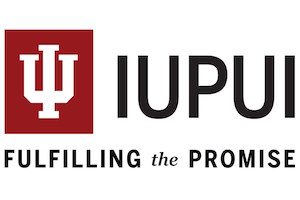



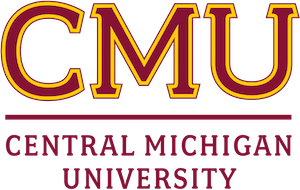


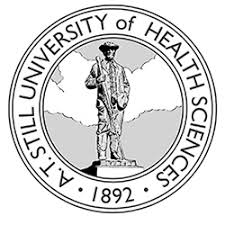
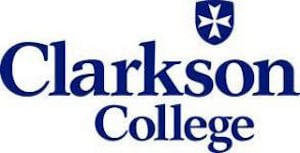



 If you’re looking for a Ph.D. in Health Care Administration, you’ve come to the right place. While a Ph.D. in this discipline is rarer than other degrees, they still exist. A Ph.D. is a degree that’s more focused on creating future researchers and academics. If you’re looking to work in academia and make discoveries that will significantly impact the future of healthcare, you should pick one of these programs.
If you’re looking for a Ph.D. in Health Care Administration, you’ve come to the right place. While a Ph.D. in this discipline is rarer than other degrees, they still exist. A Ph.D. is a degree that’s more focused on creating future researchers and academics. If you’re looking to work in academia and make discoveries that will significantly impact the future of healthcare, you should pick one of these programs. A Ph.D. in Health Services stands for a Doctor of Philosophy in Health Services. In these programs, you’ll learn about the finances, structures, and policies of healthcare in the United States. You’ll be prepared to work in research, teach future healthcare professionals, and do vital healthcare policy analysis. There are other roles that you’d qualify for, but these are the most common outcomes. Some people who hold these degrees end up working in government agencies. You’ll have titles like research associate, research scientist, and executive roles in a number of agencies, universities, and other organizations.
A Ph.D. in Health Services stands for a Doctor of Philosophy in Health Services. In these programs, you’ll learn about the finances, structures, and policies of healthcare in the United States. You’ll be prepared to work in research, teach future healthcare professionals, and do vital healthcare policy analysis. There are other roles that you’d qualify for, but these are the most common outcomes. Some people who hold these degrees end up working in government agencies. You’ll have titles like research associate, research scientist, and executive roles in a number of agencies, universities, and other organizations. Health Information Manager: You’ll manage the health records of a medical facility, making sure they stay protected, and are only shared with authorized parties. You’ll use the latest software and medical information technology available, and have a deep understanding of the regulations that govern medical records.
Health Information Manager: You’ll manage the health records of a medical facility, making sure they stay protected, and are only shared with authorized parties. You’ll use the latest software and medical information technology available, and have a deep understanding of the regulations that govern medical records. Hospital Administrator: This is what it sounds like. You’ll run a hospital, making sure its services are delivered properly and its policies are closely followed by its staff, who you will coordinate and supervise.
Hospital Administrator: This is what it sounds like. You’ll run a hospital, making sure its services are delivered properly and its policies are closely followed by its staff, who you will coordinate and supervise. In these programs, you’ll study how to improve healthcare quality and delivery as well as the best ways to educate healthcare workers and manage an array of different health organizations or agencies. You’ll take courses in the legal policies and ethics in healthcare, healthcare professionalism, clinical healthcare, research and analysis, community health, public health, disease prevention, healthcare policy, and healthcare delivery, among many others.
In these programs, you’ll study how to improve healthcare quality and delivery as well as the best ways to educate healthcare workers and manage an array of different health organizations or agencies. You’ll take courses in the legal policies and ethics in healthcare, healthcare professionalism, clinical healthcare, research and analysis, community health, public health, disease prevention, healthcare policy, and healthcare delivery, among many others.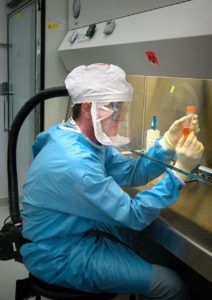 A DHSC can also lead to work in a specific aspect of science, like biochemistry or biophysics. In these positions, you’ll look at the physics and chemistry that create and govern life. Your findings will help develop medical advancements and a better understanding of organisms. You’ll likely also teach college-level courses while working in this field as well.
A DHSC can also lead to work in a specific aspect of science, like biochemistry or biophysics. In these positions, you’ll look at the physics and chemistry that create and govern life. Your findings will help develop medical advancements and a better understanding of organisms. You’ll likely also teach college-level courses while working in this field as well.